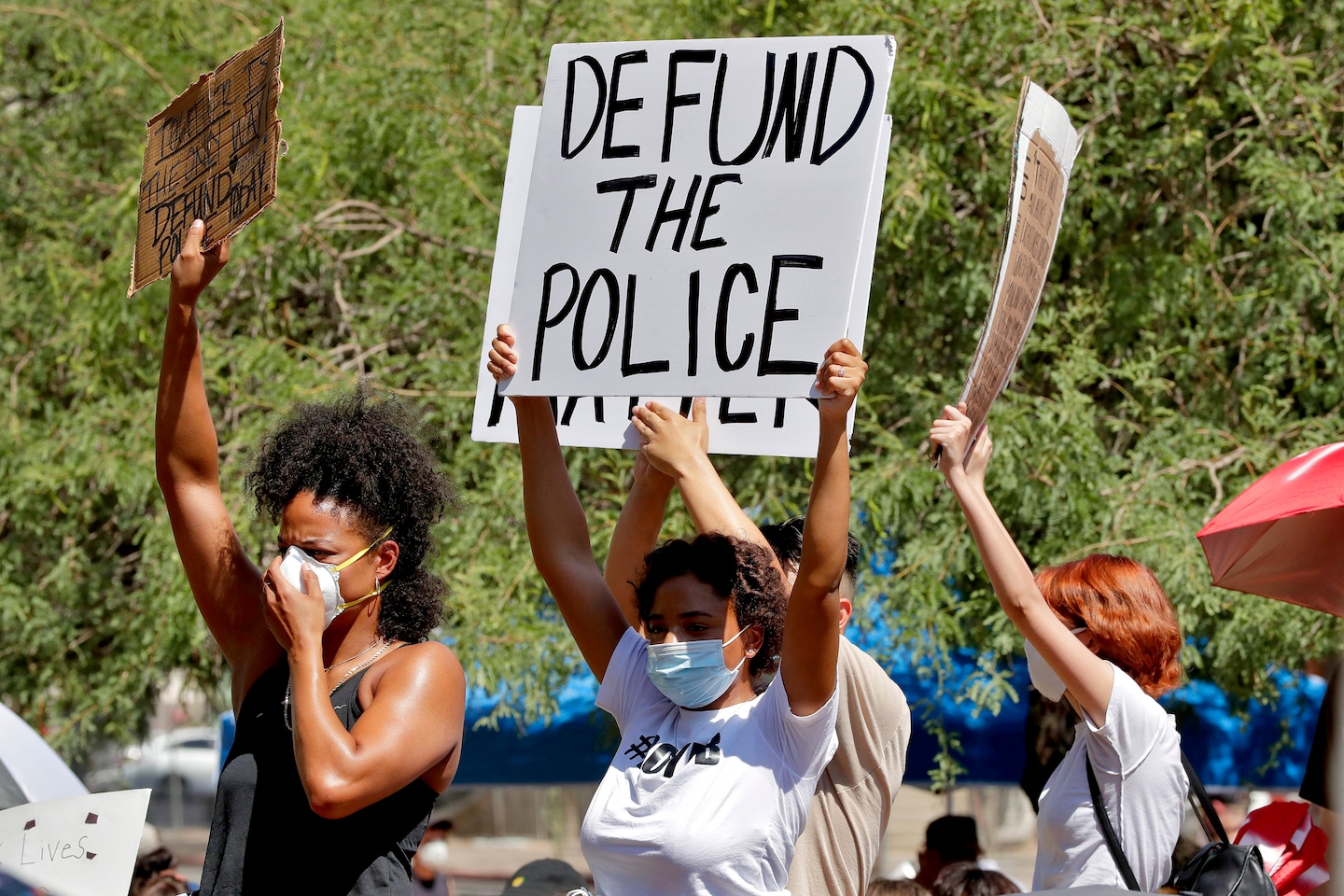While other jurisdictions have recently responded to similar investigations by pledging to cooperate with federal oversight, Phoenix officials had publicly questioned the Justice Department probe, raising the possibility that they could refuse to accept its findings. If so, that could lead to a legal battle in which the Justice Department goes to court to pursue an order forcing the local agency under federal supervision, opening a contentious new front in the public debate over police reform and accountability.
The Justice Department began its sweeping investigation into the Phoenix police in August 2021, on the heels of launching similar probes into the police departments in Minneapolis and Louisville.
These investigations, called “pattern or practice” probes, scrutinize local police departments and examine things including their training protocols, use-of-force policies, accountability structures and other elements. The findings generally lead to court-approved agreements known as consent decrees, which lay out scores of specific actions and changes that local leaders have to undertake under a federal monitor’s oversight.
These agreements can stretch out over years and cost millions of dollars for the local jurisdictions.
Investigations into the police departments in Minneapolis and Louisville concluded last year. In both cases, the Justice Department determined that the departments used excessive force and acted improperly. Those findings were announced at news conferences with Attorney General Merrick Garland joined by local leaders and officials accepted the reports and vowed to negotiate plans for federal supervision.
The Phoenix investigation’s findings, by contrast, were announced by Assistant Attorney General Kristen Clarke, who leads the Justice Department’s Civil Rights Division, in a virtual briefing.
“The people of Phoenix deserve fair, nondiscriminatory and constitutional policing,” Clarke said.
Officials in Phoenix had already bristled at the Justice Department investigation, with an attorney for them writing in a January letter that the city’s police force had rolled out “changes [that] demonstrate a powerful commitment to reform” and did not require court-enforced federal oversight.
In a statement Thursday after the federal report was released, Phoenix Mayor Kate Gallego (D) said the city received the report when it was made public.
Gallego said the city council would meet this month “to receive legal advice, better understand the report, and discuss next steps. I will carefully and thoroughly review the findings before making further comment.”
The city had previously pushed back on the idea that a consent decree was needed.
“Whatever their virtues, consent decrees are lengthy, complicated, and expensive,” stated the January letter, signed by Michael R. Bromwich, an attorney for the city and a former Justice Department inspector general.
Instead, Bromwich suggested the Justice Department release a technical assistance letter, which outlines federal findings and guidance but does not have enforcement power.
Also in January, the city released a report listing reforms it was putting in place for the Phoenix police. That report said city officials “welcome the additional insights” the federal investigation could bring but were “not willing to hand over” reforming their police department to a consent decree.
The federal report released Thursday acknowledged the city’s contention that a consent decree was unnecessary, but added a note of disagreement.
“Our experience shows that reforms on paper are not enough to address entrenched unlawful practices of the degree we describe” here, the report said. The city’s plans were positive but “not enough to achieve durable reform,” the report added.
The Justice Department laid out a suite of what it called “initial remedial measures” — including improving use of force policies and oversight; better documenting police activity; and ramping up training — but said the Phoenix police could only fix things “with true accountability.”
In the January letter from their attorney, Phoenix officials protested that the Justice Department refused “to provide the factual predicates for the investigation” into their city’s police force. They pointed to high-profile incidents that preceded other probes, noting that the 2020 police killings of George Floyd in Minneapolis and Breonna Taylor in Louisville “spurred protests throughout the country and undoubtedly served to some extent as the predicates for the DOJ pattern-or-practice investigations of those cities and those police departments.”
“No similar event triggered the Phoenix investigation,” the letter added.
The Justice Department report released Thursday noted that the Phoenix police shoot and kill people at one of the country’s highest rates. Phoenix police officers have fatally shot at least 119 people since the beginning of 2015, according to a Washington Post database tracking deadly shootings by police. This number outpaces fatal shootings by police in other cities with larger populations, including Chicago, New York and Houston.
In the report, federal investigators said they found that Phoenix police “use unreasonable force to rapidly dominate encounters, often within the first few moments of an encounter.” Officers shoot at people who present no threat or who are no longer a threat, the report says, sometimes using force against people who are already unconscious due to police gunfire. Police also use force rapidly, the report said, sometimes before even speaking to the person involved.
Phoenix police officers also frequently fail to report using force, sometimes because it was not required but other times because they mischaracterized what happened, investigators found.
Investigators also concluded that Phoenix police use unconstitutional policing on people who are homeless, detaining them without any reasonable suspicion, citing people officers falsely claim are on private property and destroying property without necessary notice.
The Phoenix police force’s enforcement tactics have resulted “in stark disparities in how officers treat Black, Hispanic, and Native American people,” the report said. Investigators concluded that officers enforce some laws more harshly against those groups than White people doing similar things, with “overwhelming statistical evidence” showing that the disparities “are due to discrimination.”
This is a developing story. It will be updated.
David Nakamura contributed to this report.
#Justice #Dept #announces #findings #investigation #Phoenix #police #force,
#Justice #Dept #announces #findings #investigation #Phoenix #police #force
